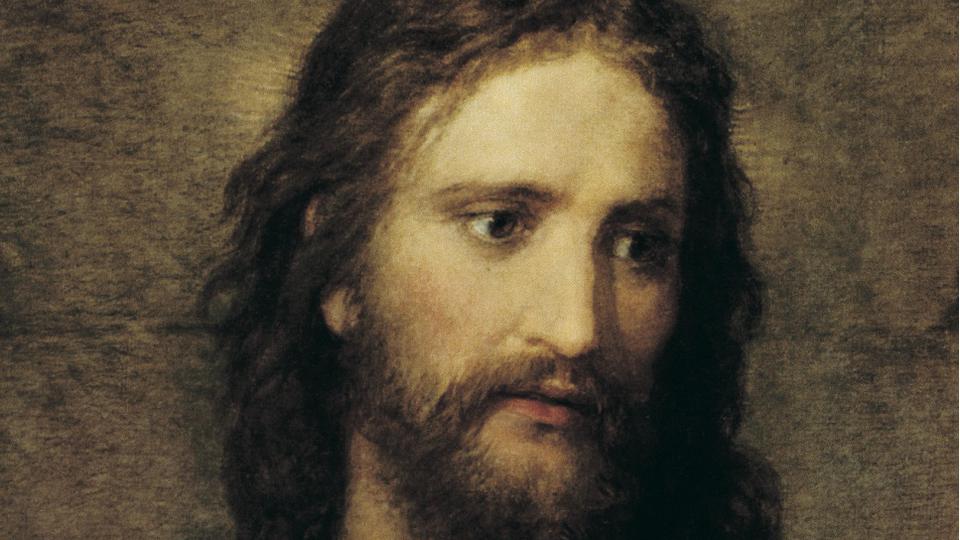Twice in the past six months an apostle has used the world general conference of The Church of Jesus Christ of Latter-day Saints to address one of the most common questions asked by the public about the Church in the past two years: Are Mormons Christian?
In his October 2007 address, Elder Jeffrey R. Holland of the Church’s Quorum of the Twelve Apostles explained the Church’s doctrine of the Godhead — the term used by Mormons that most closely equates to the traditional Christian concept of the Trinity. In his remarks in April 2008, Elder Holland addressed the issue of the additional scriptures used by Latter-day Saints. He described the topic as “the other major doctrine” that characterizes our faith, “namely the bold assertion that God continues to speak His word and reveal His truth, revelations which mandate an open canon of scripture.”
| Painting of Jesus Christ by Heinrich Hofmann. 2011 Intellectual Reserve, Inc. All rights reserved2011 Intellectual Reserve, Inc. All rights reserved |
Speaking of people who reject an “open canon”, Elder Holland said: “Imputing no ill will to those who take such a position, nevertheless we respectfully but resolutely reject such an unscriptural characterization of true Christianity.”
His points included:
- “One of the arguments often used in any defense of a closed canon is the New Testament passage recorded in Revelation 22:18: ‘For I testify unto every man that heareth the words of … this book, If any man shall add unto these things, God shall add unto him the plagues that are written in this book.’ However, there is now overwhelming consensus among virtually all biblical scholars that this verse applies only to the book of Revelation, not the whole Bible.”
- “Virtually every prophet of the Old and New Testament has added scripture to that received by his predecessors. If the Old Testament words of Moses were sufficient, as some could have mistakenly thought them to be, then why, the subsequent prophecies of Isaiah? Or Jeremiah who follows him? To say nothing of Ezekiel and Daniel, of Joel, Amos, and all the rest. If one revelation to one prophet in one moment of time is sufficient for all time, what justifies these many others? What justifies them was made clear by Jehovah Himself when He said to Moses, ‘My works are without end, and … my words … never cease’ (Moses 1:4).”
- “The scriptures are not the ultimate source of knowledge for Latter-day Saints. They are manifestations of the ultimate source. The ultimate source of knowledge and authority for a Latter-day Saint is the living God. The communication of those gifts comes from God as living, vibrant, divine revelation.”
- “This doctrine lies at the very heart of The Church of Jesus Christ of Latter-day Saints and our message to the world. … We believe in a God who is engaged in our lives, who is not silent, not absent, nor as Elijah said of the God of the priests of Baal, is He ‘[on] a journey, or peradventure he sleepeth, and must be [awakened]’ (1 Kings 18:27).
- “In a sense Joseph Smith and his prophetic successors in this Church answer the challenge Ralph Waldo Emerson put to the students of the Harvard Divinity School 170 years ago this coming summer. To that group of the Protestant best and brightest, the great sage of Concord pled that they teach ‘that God is, not was; that He speaketh, not spake.’”

